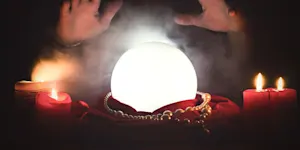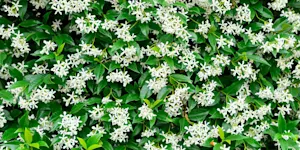What Makes This Word Tick
"Somnolent" is a lovely word that ambles in with a gentle yawn and perhaps an old-fashioned nightcap. It describes a state of sleepiness or drowsiness — that blissful in-between of wakefulness and dreamland. The word is often used with a hint of poetic tenderness.
If Somnolent Were a Person…
Envision a somnolent individual as someone who resides in a warm and cozy realm between wakefulness and slumber. Picture an elderly librarian who's quietly nodding off mid-sentence, a mug of herbal tea cooling beside them, their glasses perched on the tip of their nose.
How This Word Has Changed Over Time
Since its English debut in the 15th century, "somnolent" has retained much of its original sense, connected to sleep and drowsiness. While not as commonly used today, its dreamy nature still makes for rich, descriptive prose.
Old Sayings and Proverbs That Use Somnolent
While there aren’t any well-known old sayings that include "somnolent," the concept is timeless. Imagine nineteenth-century households using more direct phrases, like "as lethargic as a lull" or "as dreamy as a summer's afternoon."
Surprising Facts About Somnolent
Did you know that "somnolent" shares roots with medical terminology? The word "insomnia" — describing the inability to sleep — stems from the same Latin source, highlighting just how deeply interwoven our language is with the science of sleep!
Out and About With This Word
In the realm of meteorology, a “somnolent” sky might be one that's overcast and heavy, causing humans and animals alike to feel a supernatural urge to cuddle under blankets with a good book or take an afternoon nap.
Pop Culture Moments Where Somnolent Was Used
Despite its dreamy nature, "somnolent" isn't a pop culture superstar. However, it might be a word you've heard in a charming British period drama, whispered just after tea time while characters lounge languidly in their drawing rooms.
The Word in Literature
"Somnolent" finds its home in the more poetic corridors of literature. You might discover it in classic novels or timeless poems that explore themes of sleep, dreams, and those fleeting moments at the edge of consciousness.
Moments in History with Somnolent
Imagine a somnolent hush falling over a room during evening gatherings in the salons of 18th-century Paris. Guests might recline on chaise lounges as the conversation gently waned, wrapping everyone in a restful, somnolent ambiance.
This Word Around the World
While "somnolent" is a sleepy traveler across the globe, its gentle essence is shared in other languages too. In French, "somnolent" retains its soothing sound; in Spanish, it's "somnoliento," equally drowsy and dreamy.
Where Does It Come From?
The word sauntered into English from the Latin “somnolentus,” related to "somnus," meaning sleep. Its etymology wraps around you like a warm blanket, just perfect for a tête-à-tête with the Sandman.
How People Misuse This Word
People sometimes misuse "somnolent" when they mean "boring" or "uninteresting." However, "somnolent" conveys more of an affectionate, drowsy state rather than sheer dullness.
Words It’s Often Confused With
Lethargic - While both imply low energy, "lethargic" leans more toward sluggishness.
Soporific - Both convey drowsiness, but "soporific" suggests causing sleep.
Drowsy - Synonymous in some contexts but carries a more casual tone.
Additional Synonyms and Antonyms
Synonyms for this dreamy word include "drowsy," "dozy," and "sleepy," while antonyms would be "alert," "awake," and "vigilant."
Want to Try It Out in a Sentence?
After a hearty lunch, the somnolent atmosphere in the sunlit garden had everyone reaching for a lawn chair and a wide-brimmed hat for an afternoon nap.
















